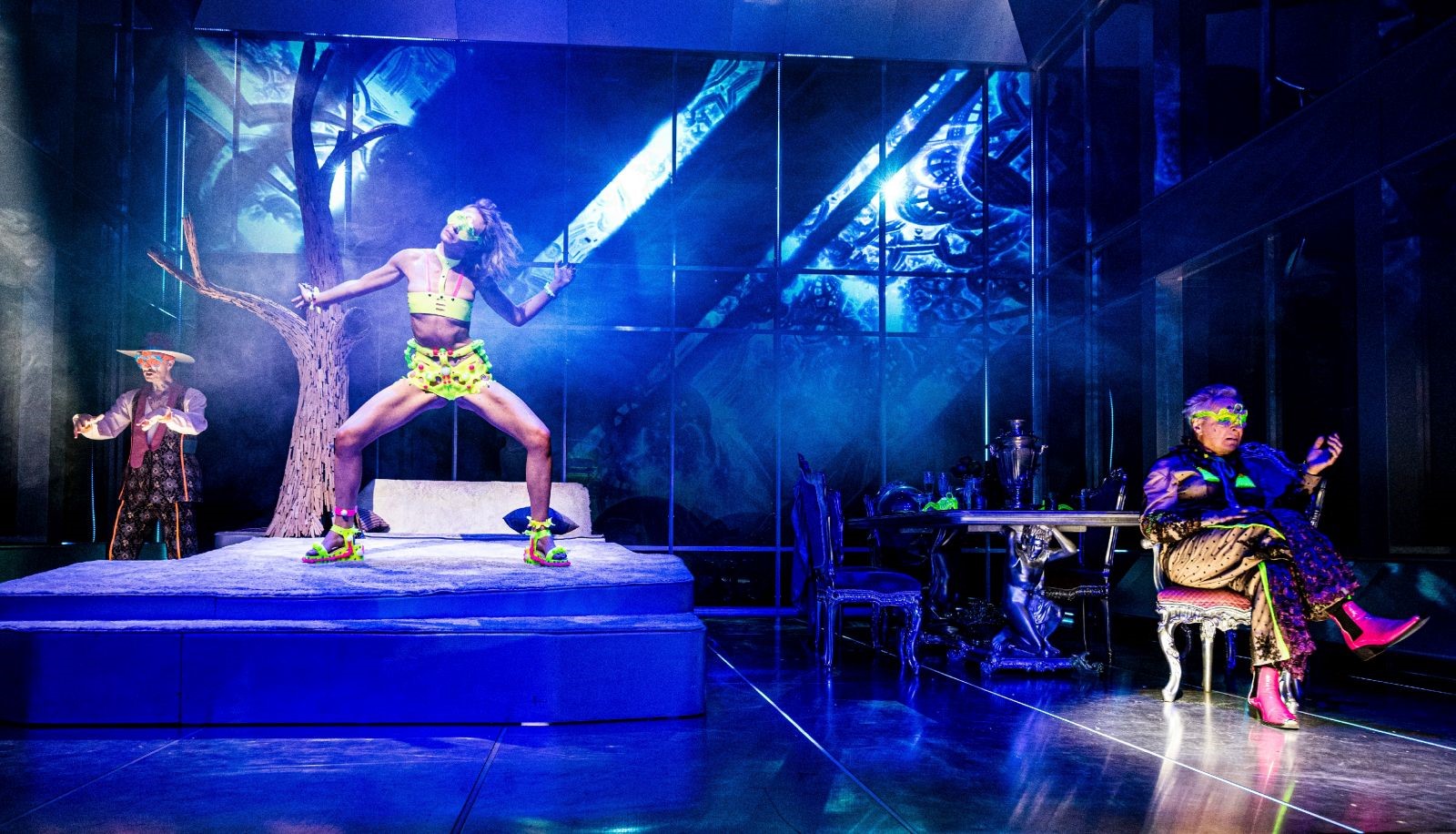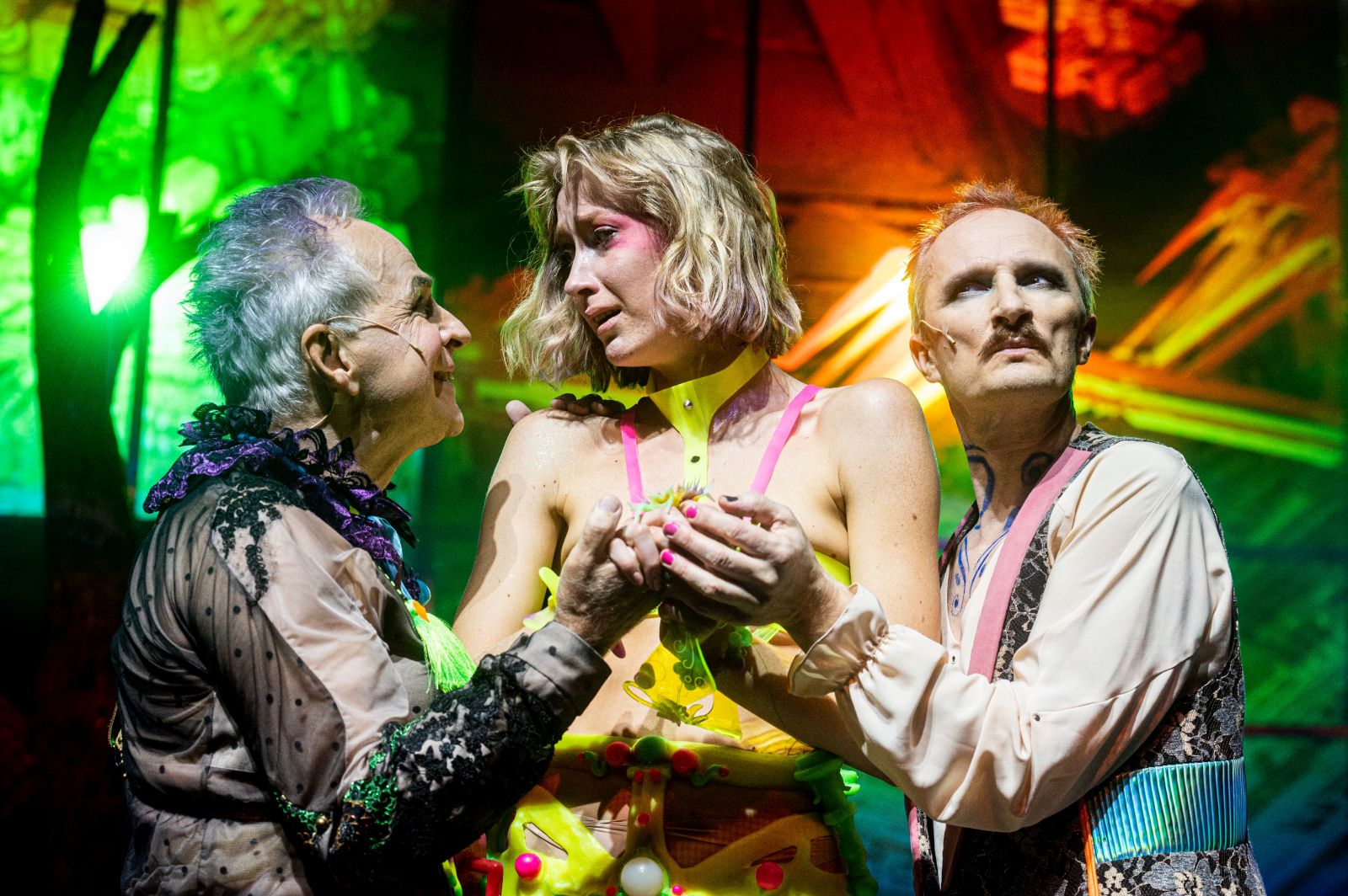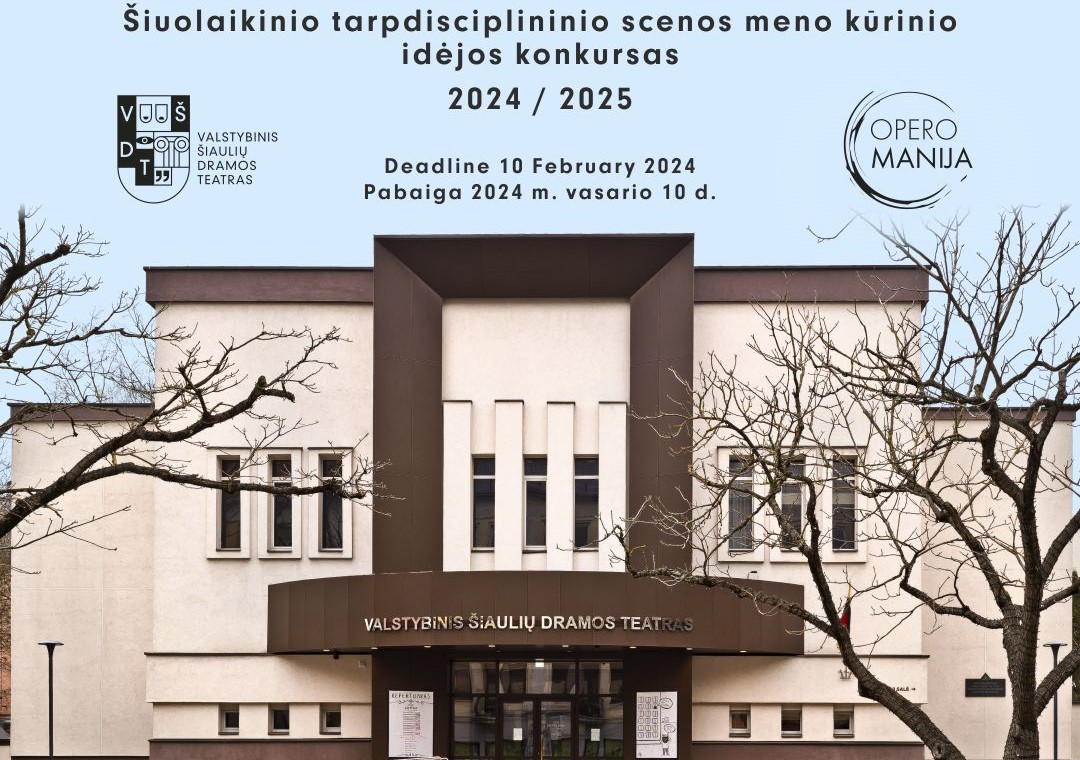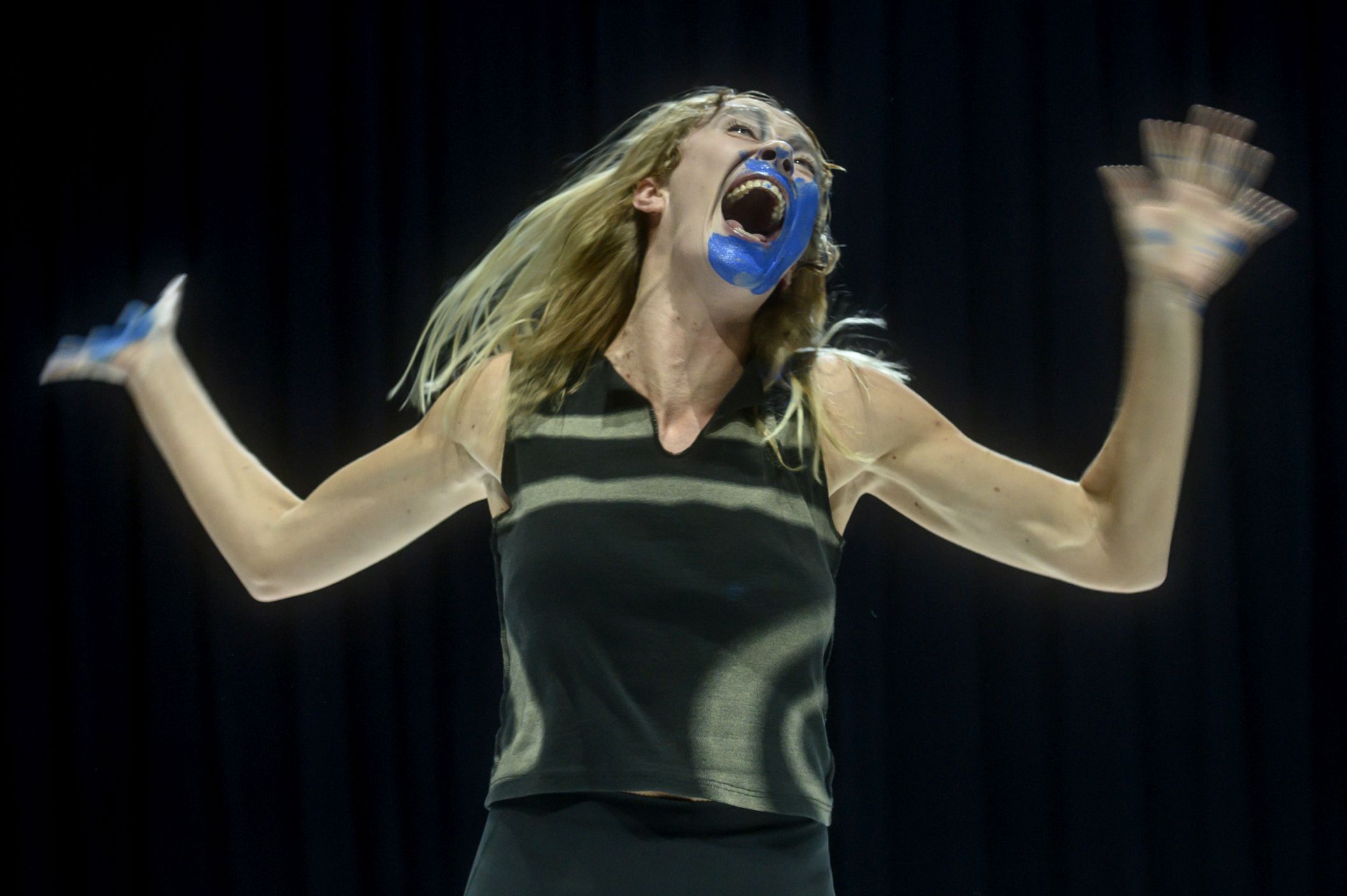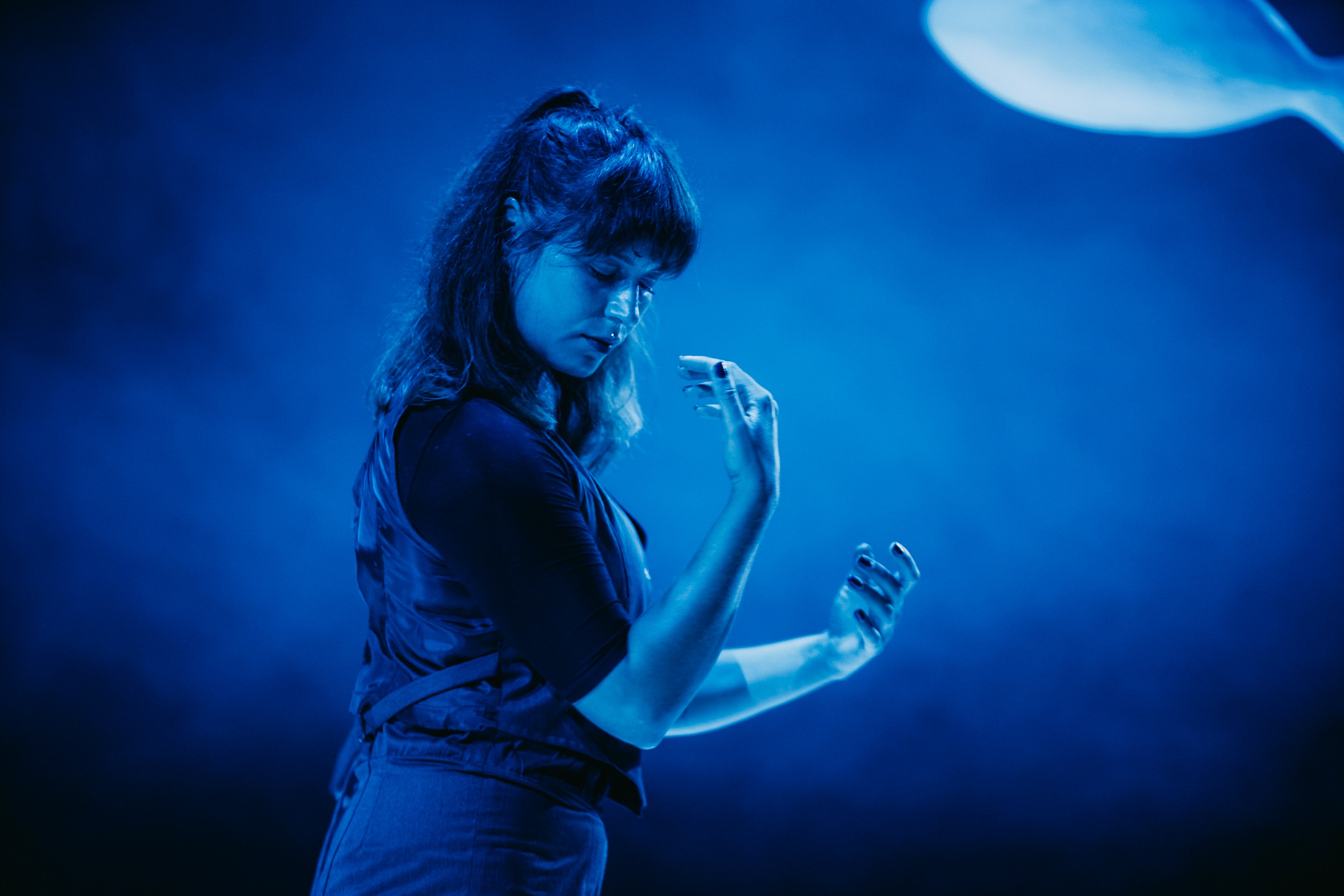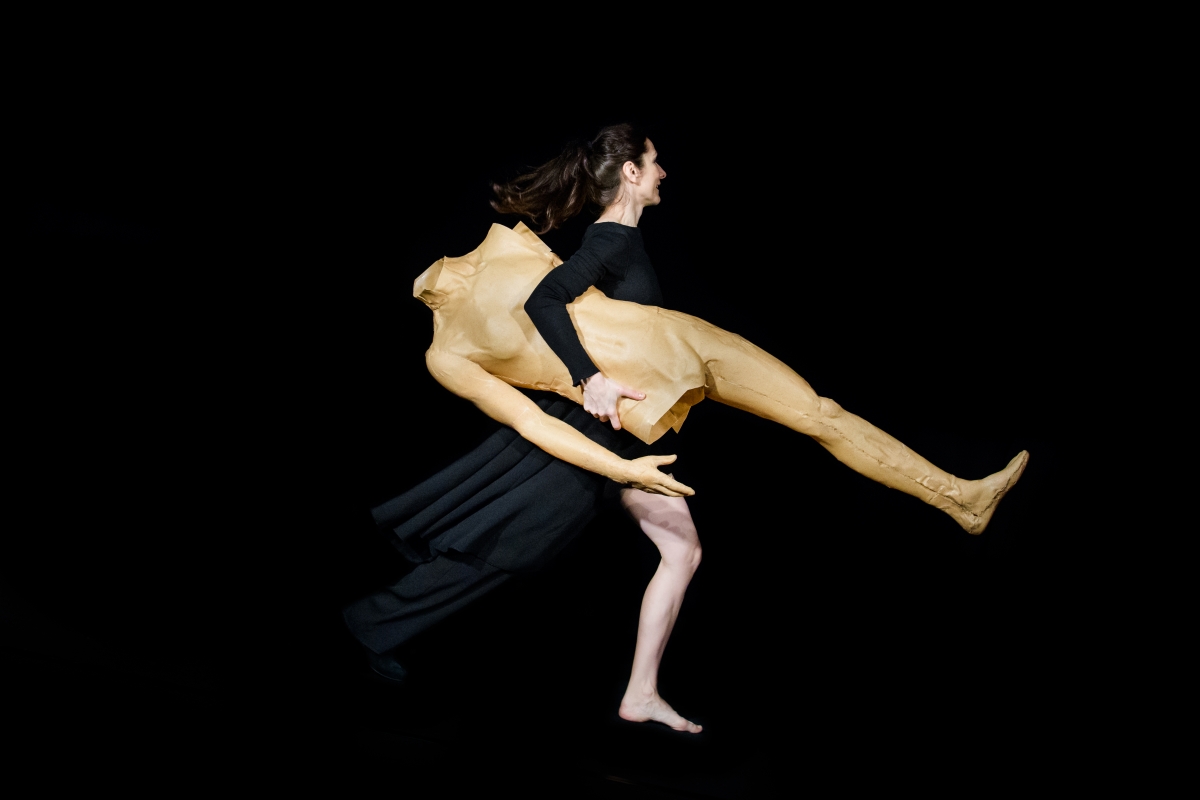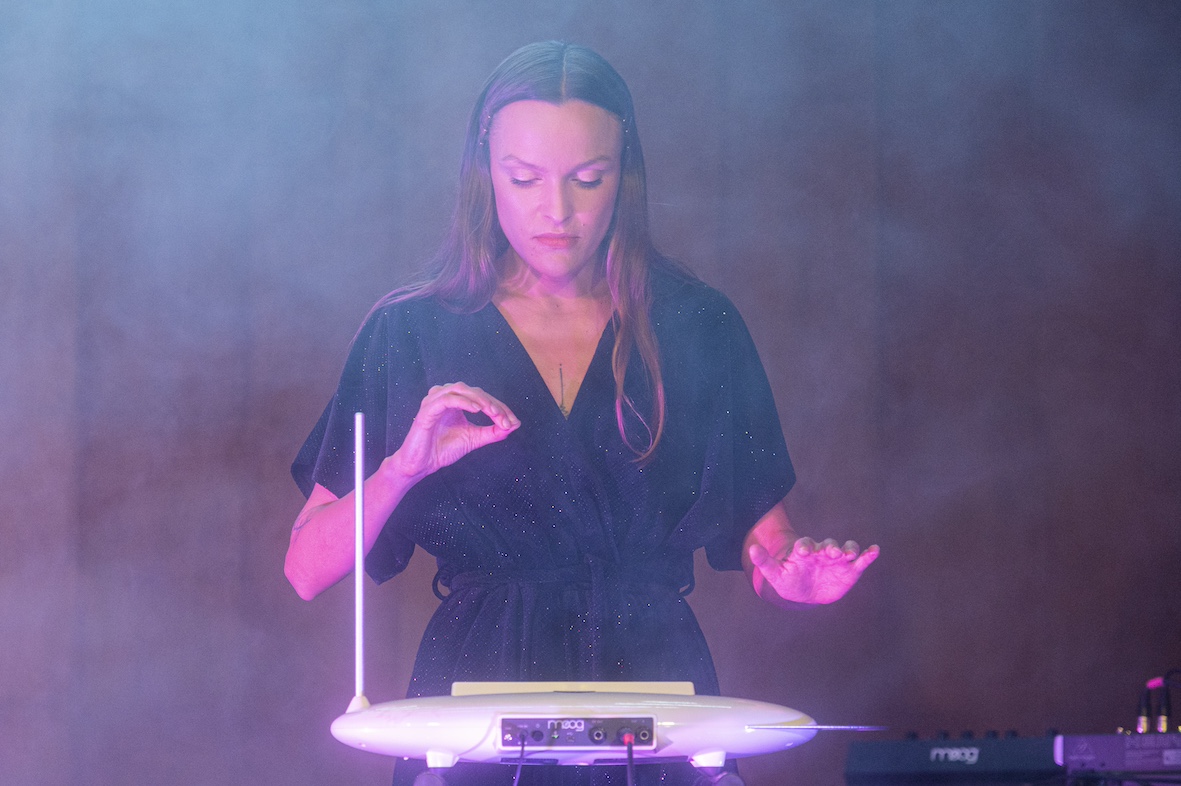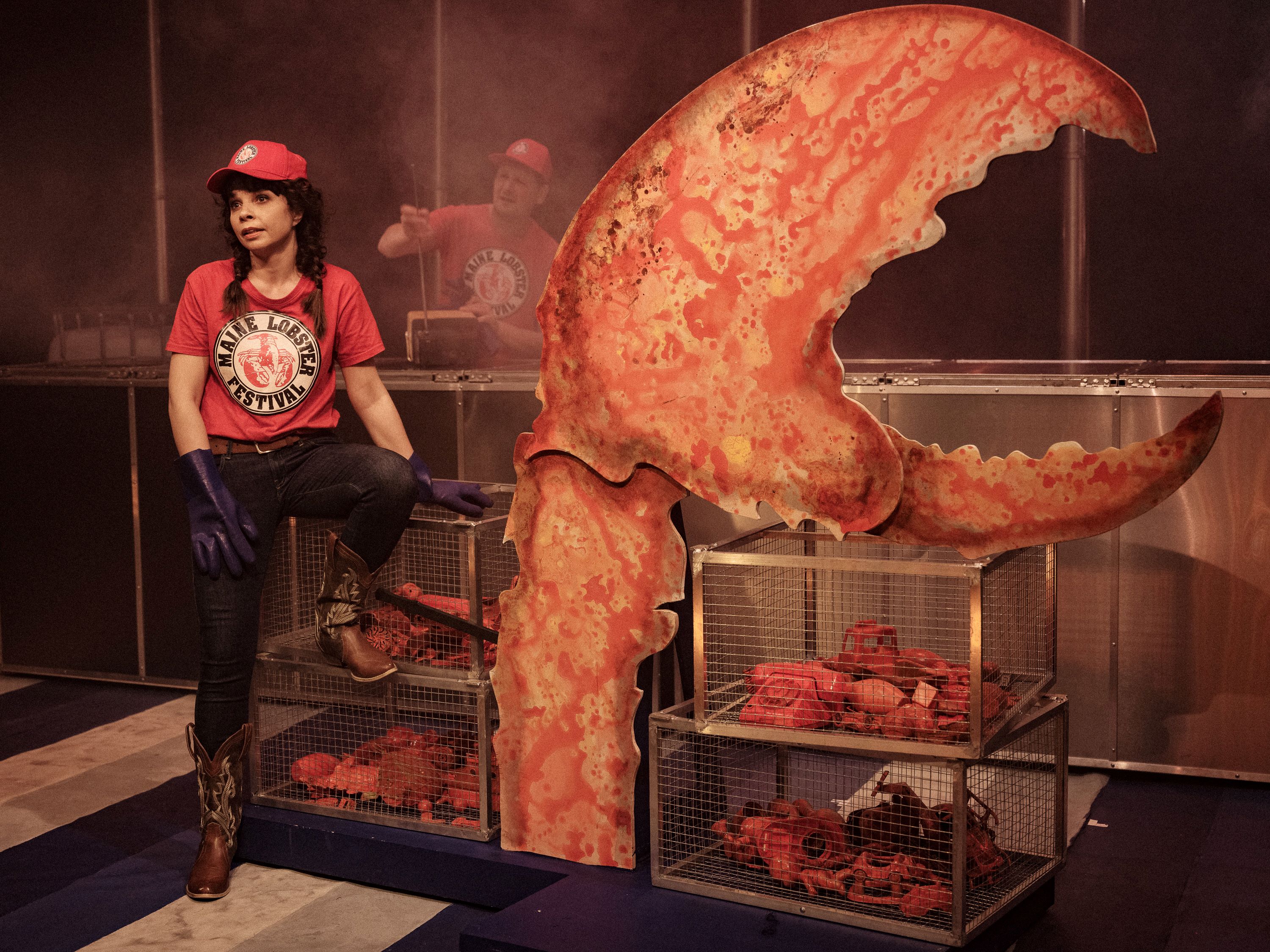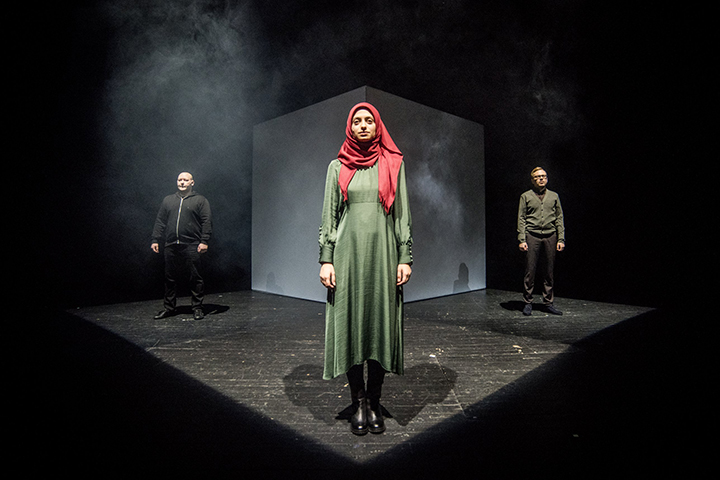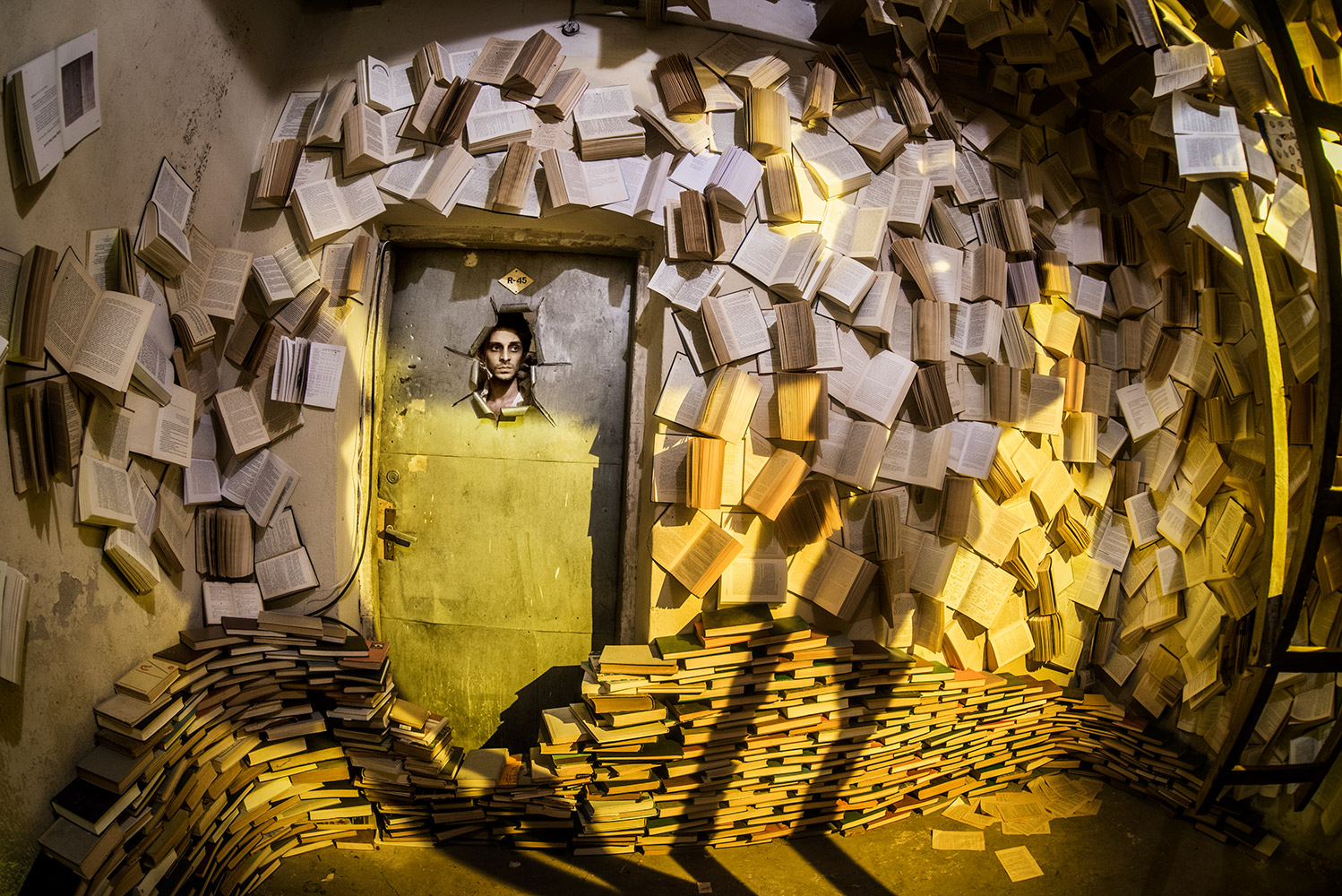Ever since 1990, when the student Oskaras Koršunovas staged his first show There to be Here (based on Incidences by Daniil Kharms), he has been perfoming a role as one of the best-known Lithuanian theatre directors at home and abroad (a year ago, a Polish critic named him 'the most important director alive in Lithuania'). Indeed, since independence was regained, Koršunovas has continued to be a symbol of contemporary Lithuanian theatre.
In my personal opinion, Koršunovas staged his best shows around a decade ago. I have not seen any better Lithuanian theatre productions than his The Lower Depths (2010) and The Seagull (2014). Of course, afterwards, he staged a host of productions in Lithuanian and foreign theatres. However, most of them were either large-scale shows where entertainment came before deeply hidden meanings, or small-scale shows (staged at the Oskaras Koršunovas Theatre), where his authorship was sometimes questioned (quite a few ideas were developed by other artists who invited him to help with directing).
However, the productions under Koršunovas' name are quickly sold out and are quite frequently invited to international theatre festivals. He was even invited to present his première based on Othello by William Shakespeare at the Avignon Festival in 2020. However, due to the pandemic, he did not visit the festival for the eighth time. As for the show, after a few postponements, the première was held in Vilnius in July 2021.
His Othello had been anticipated for quite a long time, making audiences excited and keen to see the director's comeback after lockdown. Some got what they expected. Critics, however, who have been following Koršunovas' career for quite a long time, did not appreciate the show very much.
Since Othello has been to foreign countries (Poland, Romania, Bosnia and Herzegovina, Spain, and Russia before it started its full-scale war against Ukraine), quite a few critics have reviewed the show (some articles were translated and published by the OKT theatre), creating an opportunity to compare perceptions abroad with the perception in the Lithuanian professional field. The main difference is that foreigners tend to analyse artistic form more broadly and more deeply, while Lithuanians talk mostly about representations of specific topics on the stage.
This is a matter of context. The concept of Othello recalls previous works, staged during Koršunovas' most productive period. For example, the key to a stage interpretation is a material prop. In A Midsummer Night's Dream it was wooden boards, in The Most Excellent and Lamentable Tragedy of Romeo and Juliet it was flour, and in Othello (by the scenographers Julija Skuratova and Oskaras Koršunovas) there were different-sized spools of thread, but without any thread. As in a few previous shows, a huge job in Othello was done by the choreographer Vesta Grabštaitė, who managed to inspire the young actors to give the best of themselves for the show, while spreading a huge amount of energy. Furthermore, like before, Othello included a lot of shouting, sexuality and comic interludes that were not necessarily connected with the main theme.
However, there are a few things that seemed exeptional. Firstly, Koršunovas used Gospel music for the stories and emotions that Othello expressed, thus including some musical elements in the show. Furthermore, he gave the main role to Oneida Kunsunga-Vildžiūnienė, who is the only black actor in Lithuania. Thus he created a visible difference which actually had an impact on the story of Othello.
However, these aspects and others were not as well connected as in other shows where the director went down a similar creative path. This might be the reason why Lithuanian critics did not see the point in concentrating on the form (although they commented on that a bit). Meanwhile, a lot of them emphasised the representation of minorities on stage, and reflected on the decision to give the role of Othello to a female actor.
Although Kunsunga-Vildžiūnienė acted well, the concept of the character remained unclear. It was interesting that Koršunovas did not change the play's original pronouns, so everybody addressed Othello as a man. This is important, because it is hardly possible to use the Lithuanian language without stating the gender of the subject or the object. Critics reflected on the language, and they also argued whether this decision was supposed to represent non-binary people, or whether the director just found it difficult to include homoerotic scenes properly. It posed the question that maybe Koršunovas, who has recently been active writing Facebook posts on various topics and issues, is just misguided in a difficult topic such as gender-identity, and is not yet able to explore it properly.
However, Othello keeps going to foreign theatres and festivals, although not in Western Europe, where it was supposed to be premièred, and the reviews by foreign critics allow Koršunovas to maintain his role as a prophet who is not recognised in his own home. This cannot be said about another large-scale show, Sleepers, which was premièred in November 2021 at the 'Sirenos' international theatre festival, but has not yet gone on tour.
The show is based on a play by the famous Lithuanian writer Marius Ivaškevičius, who calls this creative work 'the first Lithuanian dystopia'. Sleepers is a story about a future world where, due to overpopulation, people are divided into two shifts: every ten years one shift goes to sleep, and another gets up to live. The play starts when a family of three sisters and their mother from the second shift awake and go on striving towards their goals. Meanwhile, a man from the first shift arrives in the family and reveals that there is an authoritarian regime which plans to conquer the democratic world of the second shift.
Although the show is rightly called prophetic, the representation of minorities in Sleepers was a bigger mess than in Othello. This time, not only critics but also a culture researcher contributed an article to the media. Here are some of the critical aspects that were emphasised:
- Although the play was advertised as feminist, and most of the characters are women, almost all the creative team were men (the director, playwright, scenographer, composer etc.);
- A world where women dominate is hateful towards men;
- Women's sexuality is widely expressed in a lot of sex scenes between women, but true love is represented as a partnership between a man and a woman;
- Mansplaining: a man is the one who brings women the truth, otherwise they would not be able to find out what happens in the other shift;
- The representation of sexual minorities and races is superficial and even disrespectful;
- The actresses act very well, but they embody harsh stereotypes.
These are just a few of the points that frustrated Lithuanian professionals. Meanwhile, the Polish critic Adam Domalewski added another: 'Sadly, typically for the latest work by Koršunovas, this one includes inconsistency and a lack of formal and intellectual discipline. The show is too long, too verbose, very jerky and uneven'. However, despite the reviews, the performances at the Lithuanian National Drama Theatre are always sold out. It seems that Lithuanian audiences believe in Koršunovas and do not question his work too deeply.
Despite all the criticism, it has to be said that when it comes to bringing out the best in actors, Koršunovas is still one of the best professionals. All the cast in Othello, except Kunsunga-Vildžiūnienė, consist of his former students who graduated from the Lithuanian Academy of Music and Theatre just a few months before the première, and they include some very promising actors. Sleepers includes actors who studied with Koršunovas earlier. Very little criticism was made of them in reviews. This means that the director might not be able to grasp the current reality in Western values at the moment, but he still contributes to the future of Lithuanian theatre. Therefore, for those who are interested in Lithuanian theatre, it might be a good idea to watch his former students (including students of directing, such as Laura Kutkaitė and Jokūbas Brazys), instead of his own current creative path.
***
Some information in this article was based on reviews by Daria Ancuța, Goda Dapšytė, Adam Domalewski, Agnė Gintalaitė, Sigita Ivaškaitė, Aušra Kaminskaitė, Imma Merino, Mircea Morariu and Kristina Steiblytė.
-----
Publikaciją finansuoja Lietuvos kultūros taryba

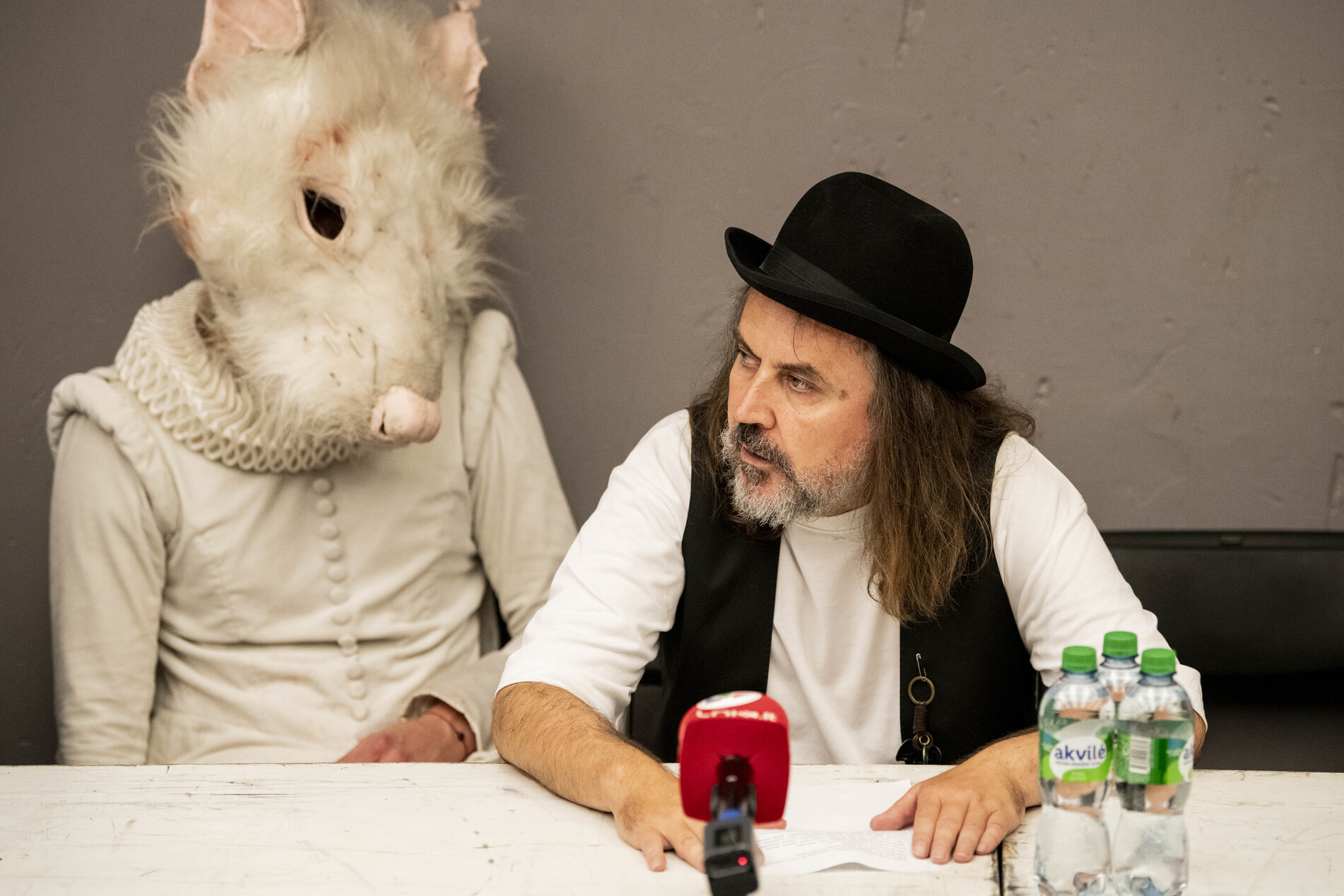
.jpg)
